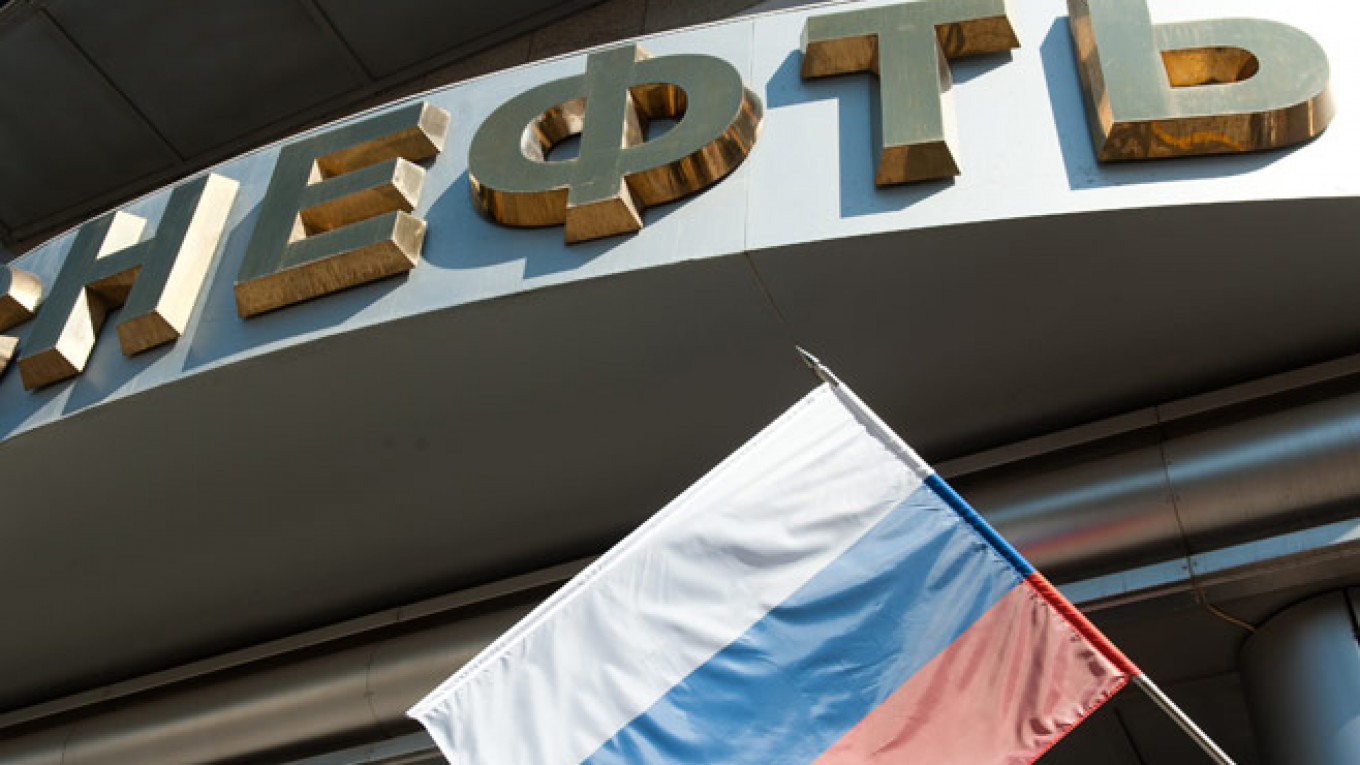Russia has not decided whether to change taxes on oil firms in the world's top crude producer, Finance Minister Anton Siluanov said Tuesday, with energy companies warning that higher taxes would hit output.
Russian oil firms are benefiting from a lower ruble as it helps offset the slide in oil prices, given the companies receive revenues from crude and gas sales in hard currency.
Russia's economy, hit by weak oil prices and sanctions over Ukraine, is expected to shrink by between 3.9 and 4.4 percent this year and the government is looking for additional sources of revenue for the state budget.
Last week, the Finance Ministry proposed changing the mechanism for mineral extraction tax [MET] and oil export duty calculation to bring in about 600 billion rubles in additional revenues in 2016, a document obtained by Reuters showed.
"Proposals were made, decision was not taken," Siluanov told reporters after discussing the idea with Russian President Vladimir Putin on Tuesday.
Russia's Finance Ministry has watered down proposals to tax oil companies on windfall revenue from the weak ruble, a source familiar with discussions said Tuesday.
The source said the original proposal had been changed to freezing oil export duty cuts for one year, but keeping an MET increase as planned earlier.
"This is around 190 billion rubles [$2.9 billion] [in additional budget revenues]. Russian oil firms have earned around 400 billion rubles on the weak ruble, so it would be fair to split it," the source said.
Under the current system, Russia has been gradually raising MET and cutting oil export duties. It has also been lowering export taxes on high-margin products such as gasoline and raising duties on fuel oil.
Threat of Production Fall
The wrangling over oil taxes shows the hard choices Putin has to make both to keep promises on social spending while maintaining good relations with the energy bosses whose support he needs to stay in power.
On Tuesday, Putin ordered the government to come up with proposals to ensure revenue earned by domestic exporters thanks to the weak ruble goes to the budget.
"Of course, we should act very accurately so as not to hurt the finances of exporting companies, so that they can maintain their investment capabilities," Putin told a government meeting.
He did not publicly comment on the ways revenue could be raised. Russian oil production remains near post-Soviet highs of about 10.7 million barrels per day, with the low ruble offsetting lower oil prices.
Still, following the Finance Ministry's proposals, a number of oil companies told the government their investment — and consequently drilling and production — might fall, three oil sources told Reuters.
"The harsh proposal could lead to reduction in capital investments across the sector of at least 20 percent," one of the sources said.
Rosneft, whose CEO Igor Sechin was the only senior oil man at the meeting with Putin on Tuesday, declined to comment. LUKoil, Gazprom Neft and Bashneft also declined to comment.
A Message from The Moscow Times:
Dear readers,
We are facing unprecedented challenges. Russia's Prosecutor General's Office has designated The Moscow Times as an "undesirable" organization, criminalizing our work and putting our staff at risk of prosecution. This follows our earlier unjust labeling as a "foreign agent."
These actions are direct attempts to silence independent journalism in Russia. The authorities claim our work "discredits the decisions of the Russian leadership." We see things differently: we strive to provide accurate, unbiased reporting on Russia.
We, the journalists of The Moscow Times, refuse to be silenced. But to continue our work, we need your help.
Your support, no matter how small, makes a world of difference. If you can, please support us monthly starting from just $2. It's quick to set up, and every contribution makes a significant impact.
By supporting The Moscow Times, you're defending open, independent journalism in the face of repression. Thank you for standing with us.
Remind me later.






